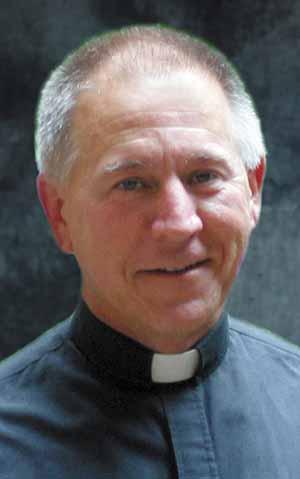
By Father Bud Grant
Reflections on hope are inevitable when Easter and the vernal equinox coincide. This spring also marks the 40th anniversary of Earth Day (April 22). Looking back on the environmental movement over these four decades does rather sober one’s hopefulness.
Earth Day was designed by Wisconsin Senator Gaylord Nelson as a national “teach-in” analogous to those of the anti-Vietnam war movement. His alignment of anti-war and pro-environment movements was intriguing: “environment,” he said, “is a problem perpetuated by the expenditure of $17 billion a year on the Vietnam War…” (Denver, April 22, 1970). So far, we have spent over $1 trillion dollars on the wars in Afghanistan and Iraq. Concern for the environment is one great casualty of those wars.
As a “teach-in” we could retrace the origins of the green movement from Rachael Carson’s prophetic “Silent Spring” (1963) and Aldo Leopold’s inspiring “Sand County Almanac” (1949) through John Muir’s essays (1874-1919) to Henry David Thoreau, who virtually shouted his concerns: “I wish to speak a word for Nature, for absolute freedom and wildness … what I have been preparing to say is, that in Wilderness is the preservation of the World” (Life Without Principle, 1863).
But 40 years after the first Earth Day we face the dire reality that wilderness is dead. Preservation of the status quo is analogous to keeping our Haitian brothers and sisters in “temporary” shelters permanently … or waging a perpetual war on terror, i.e. a kind of hell on earth.
The world as it was known from the dawn of creation is so fundamentally altered that environmentalist Bill McKibben’s new book is entitled “Eaarth,” not a misspelling, the old earth is gone and now “we live on a new planet,” he says. McKibben has reached “the devastatingly comprehensive conclusion that we no longer inhabit the world in which we’ve flourished for most of human history: we’ve passed the tipping point for dramatic climate change” (review by Mari Malcomb).
Not a particularly hopeful forecast, is it?
One of the signals that Christians are not mainstream is our deviant understanding of hope. “Hope” usually means the conviction that suffering and death (or ecological devastation) will be averted. I would call this naïve optimism. I would say that it is dangerously naïve optimism because it encourages complacency. No, that isn’t quite right. What appears as complacent optimism is really numbing fear. We are terrified of and so deny that which is out of our control. That’s it: faithless hope is really masquerading as fear.
But Christian hope expresses the profundity that suffering and death precede life. To be a Christian environmentalist on this new “eaarth,” in this new season of hope, means first to acknowledge that something has died: the earth as it has been is gone and our children’s children will never experience what we have taken for granted. God’s creation is diminished. It cannot be what it was; it ought not remain what it is. Secondly, to be a hopeful Christian is to realize that for creation to be redeemed we must embrace suffering in the knowledge that our suffering is bound to that of Christ (Phil. 3:10). Finally, Christian hope is the conviction that the resurrection is already anticipated whenever we commit loving acts of self-sacrifice. We need not fear anything if we surrender ourselves to Christ-crucified and risen. Death will have its day, but it shall not win.
Now that we are well into the Easter season and gloriously green spring, we may be tempted to forget that we only got here by slogging through winter and bowing ourselves to Lent. Our every “Alleluia” is tinged by the dissonance of those Holy Thursday words: “It is finished.” And yet, even in the depths of Lent, we sensed the power of our penances, our fasting and abstinence … Easter Joy germinates when the seed of self perishes.
“Fear is useless: What is needed is hope,” says St. John of the Cross. c.f. Mk 5:36.
(Fr. Grant is an assistant professor of theology at St. Ambrose University in Davenport.)








